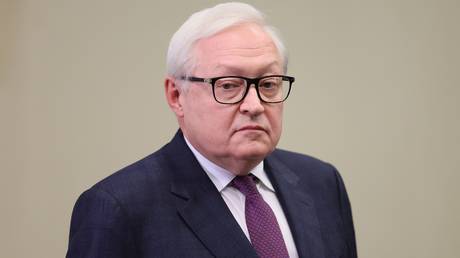How democracy has ended in Greece without so much as a single news article in the media I do not know, but it is okay, the Greeks are happy with the idea of democracy rather than actual democracy.
Greece has a unlected prime minister because the actions that are being taken are massively unpopular. So unpopular that the last Prime Minister had to leave office.
But in the eyes of the Greeks, it seems to be okay if a unlected guy comes in and does the exact same things. Apparently that is acceptable or somehow different.
To me at least, it does not seem to make any sense.
An elected Papandreou can carry out economic “measures” and only 3.8% of the Greek population believe he is/was suitable for the job.
An unelected Papademos carry’s out the same measures but 71.8% of Greek believe he is suitable.
How can 2 guys doing the same things for the same reasons be perceived so differently by the same people?
The only explanation I can think of is the Papandreou was not honest with the population with Greeks in order to get elected. He said Greece had no financial problems and when he took office he said there were major problems.
Papademos on the other hand has come in and Greeks were under no illusions with regards to what they guy was going to do which seems to make all the difference.
So for Greeks, the idea of democracy comes down to what people say not what they do. Which some would argue is how the country find itself in the position it is in today.
Greeks appear to be able to accept anything as long as they are told the truth in advance.
Is it possible that all the protests in Greece were actually not protests against the austerity measures at all but actually protests against being lied to by politicians?
And this has now led to Greeks being sick of politicians and welcoming a unlected government if it means they unelected government is honest.
The expectations of Greeks when it comes to democracy has been reduced by so much they would prefer not to have it.
Greeks will happily exchange democratically elected leaders for unelected leaders if the unelected leaders tell the truth, no matter what that “truth” is.
It is almost as if the Greek mentality has no been manipulated so much that Greeks do not care what their political leaders do. The only thing they ask for is honesty even if that honesty means devastation for the country.
Could this have been the plan from the beginning, to pollute the image of democracy so much in the minds of Greeks that they would welcome a dictatorship whether it be based in Athens or somewhere else in Europe?
What really highlights the confusion of Greeks when it comes democracy is the survey results when Papademos is not included.
Meanwhile, six in ten respondents support the establishment of new political parties. On the question on how the political landscape could be improved, 75% said through the formation of new parties, while 14.7 percent believed through the betterment of existing parties.
With regards to voters’ intent among the respondents who denoted their intention to cast a vote, a nine-party Parliament arises. Specifically, ND ammases 27.7 percent, Pasok 17.5 percent, KKE 11.6 percent, LAOS 9.6 percent, Democratic Left 9.2 percent, Syriza 8,2%, Ecologists Greens 4.2 percent, Democratic Alliance 3.4 percent, Citizens’ Chariot 3.0 percent, unspecified party 5.6 percent.
So 75% of Greek say to improve democracy in Greece new parties need to be formed while at the same time over 55% say they will vote for the 2 major parties.
The Greek voter, from this article, appears to be completely and utterly lost, the Greek voter appears to know what the problem is but will not stick to his or her convictions and vote for a different party.
From the figures in the article it appears Greek voters are saying “I want new parties to vote for but I will not vote for them, I will stick with the big parties”.
But it is not just Greece which has the “wasted vote” mentality. This term is also talked about in the UK mainstream media, if your vote is not for the winning party then it was a wasted vote.
Not once have I seen news coverage in the UK, TV or print, saying that you are wasting you vote if you vote for something you do not believe in.
And surely that is the whole point of voting.
But ultimately democracy in the traditional sense of the work is never truly democratic as the government gets roughly the same amount of money from the population regardless of who is in power.
The only true democracy can come from making all taxes voluntary.
Only when the actions of government are tied directly to tax revenues will there be a true democracy where government must act to make the lives of the population better and not just say that is what they are trying to do.
Source – Voters in search of new parties |
|||||
|
|||||
ND retains a strong lead over Pasok, according to a new opinion poll. More specifically, with respect to voters’ intent, New Democracy (ND) amassed 20.7 percent, followed by Pasok with 13 percent, The Communist Party (KKE) with 8.7 percent, Popular Orthodox Rally (LAOS) with 7.2 percent, Democratic Left with 6.9 percent and Syriza with 6.1 percent, Ecologists Greens with 3.2 percent, center right Democratic Alliance with 2.6 percent, center left Citizens’ Chariot (Arma Politon) 2.3 percent, other party 4.2 percent, while the undecided vote was 25.1 percent.
With regards to voters’ intent among the respondents who denoted their intention to cast a vote, a nine-party Parliament arises. Specifically, ND ammases 27.7 percent, Pasok 17.5 percent, KKE 11.6 percent, LAOS 9.6 percent, Democratic Left 9.2 percent, Syriza 8,2%, Ecologists Greens 4.2 percent, Democratic Alliance 3.4 percent, Citizens’ Chariot 3.0 percent, unspecified party 5.6 percent.
Meanwhile, six in ten respodents support the establishment of new political parties. On the question on how the political landscape could be improved, 75% said through the formation of new parties, while 14.7 percent believed through the betterment of existing parties.
At the same time, six in ten citizens (62.6 percent) wish for a coalition government in the next general elections, while 32.6 percent stand for a self-reliant government.
In the Marc poll issued for the Sunday edition of the “Ethnos” newspaper, on the question on who is the most suitable candidate for prime minister between Lucas Papademos and George Papandreou, the prime minister received 71.8 percent and the former prime minister received 3.8, while 24.4 percent did not respond.
Between Papademos and Samaras, the former received a 54.3 percent as being more suitable for prime minister and the latter received 21.7 percent, while 24 percent did not respond.
Faced with the same question with regards to the ND and Pasok leaders, Antonis Samaras ammased 38.3 percent and George Papandreou 10.7 percent, while 51 percent of the respondents did not answer.
|
|||||







More Stories
Κ. Μητσοτάκης: Κυκλοφορούν πολλοί γιαλατζί πατριώτες
Κυκλοφοριακές ρυθμίσεις την Παρασκευή στην Αττική λόγω διεξαγωγής της Ολυμπιακής Λαμπαδηδρομίας
Αιγαίο: Τουρκικό ελικόπτερο εισήλθε στο FIR Αθηνών χωρίς σχέδιο πτήσης